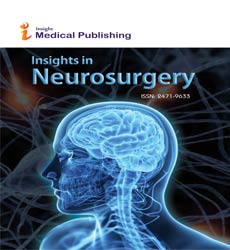Abstract
Immunecheckpoint blockage - a promising strategy to overcome glioma stem cell therapy-resistance
Glioma stem cells (GSC) are postulated to provide a reservoir of cells with selfrenewal capabilities, sustain tumor growth by generating differentiated nonstem tumor cells and may be responsible for recurrences after chemo-, radioand surgical therapy. Elimination of the GSC population is regarded as a key to successful treatment of glioma, but high resistance of GSC to conventional glioma therapy remains a therapeutic challenge. Preclinical studies show now that immune therapy for glioma using immune checkpoint inhibitors can achieve unprecedented efficacy that translates into significantly prolonged survival. Although these studies show a high anti-glioma efficacy of immune checkpoint inhibitors, especially when multiple pathways are inhibited, their impact on GSC is rarely addressed and the mechanisms behind it are far from fully elucidated. Nevertheless, recent evidence revealed that GSCs contribute more to tumor development than the non-GSC population by a more pronounced attenuation of immune surveillance. Therefore, abrogation of gliomainduced immunesuppression with immune checkpoint inhibitors seems to be a promising rationale to enhance anti-GSC efficacy. Clinical trials studying immune checkpoint blockage in high-grade gliomas have been recently designed with some of them already enrolling patients.
Author(s):
Stefan Grossauer*, Katharina Koeck* and Claudia Petritsch
Abstract | Full-Text | PDF
Share this

Google scholar citation report
Citations : 31
Insights in Neurosurgery received 31 citations as per google scholar report
Abstracted/Indexed in
- Google Scholar
- Directory of Research Journal Indexing (DRJI)
- WorldCat
- Secret Search Engine Labs
Open Access Journals
- Aquaculture & Veterinary Science
- Chemistry & Chemical Sciences
- Clinical Sciences
- Engineering
- General Science
- Genetics & Molecular Biology
- Health Care & Nursing
- Immunology & Microbiology
- Materials Science
- Mathematics & Physics
- Medical Sciences
- Neurology & Psychiatry
- Oncology & Cancer Science
- Pharmaceutical Sciences
